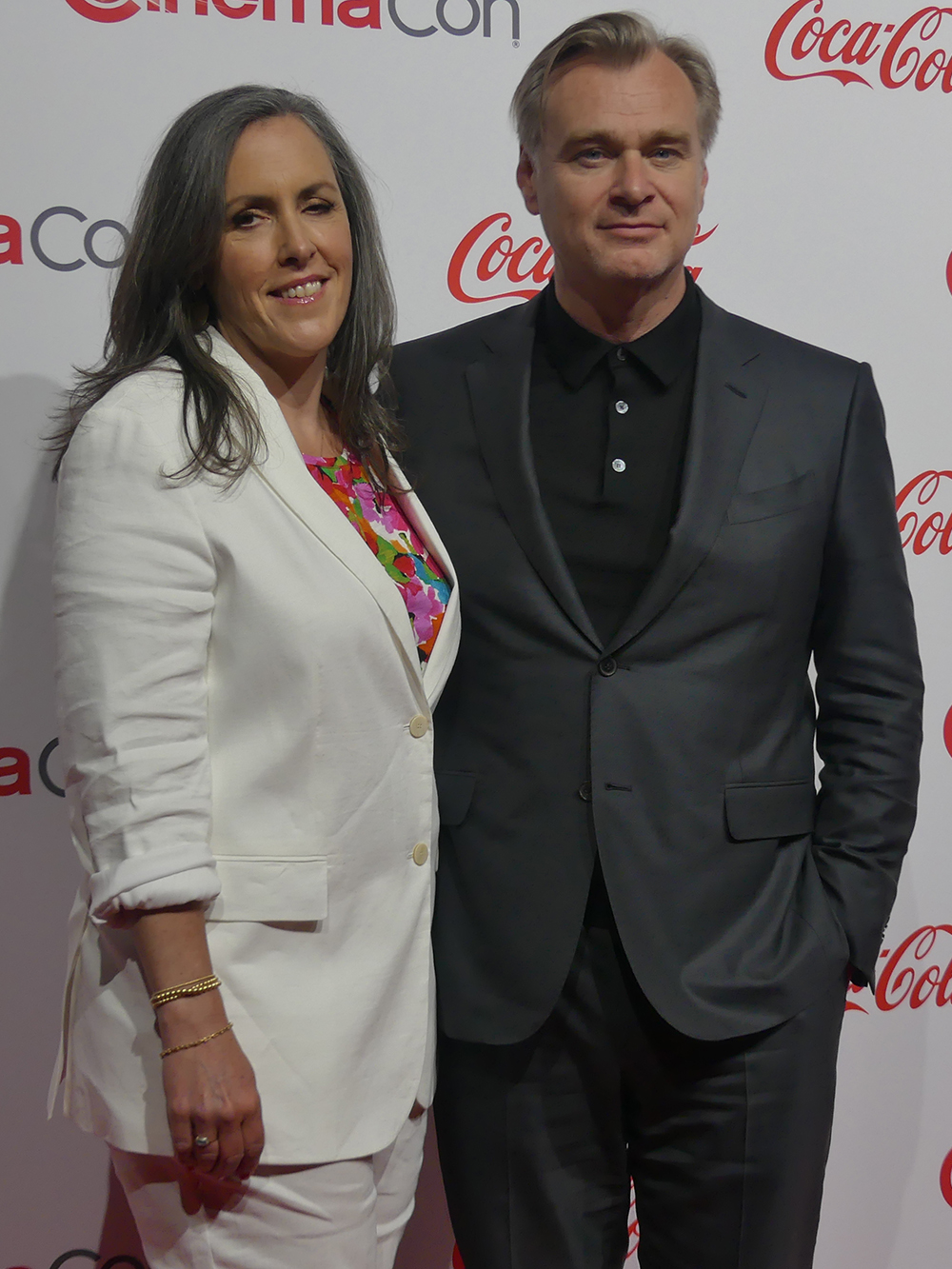Movies - Christopher Nolan’s Upcoming Epic The Odyssey Promises a Cinematic Marvel
By Mulder, 23 december 2024

Renowned filmmaker Christopher Nolan, celebrated for his innovative storytelling and technical brilliance, has unveiled his next cinematic masterpiece, The Odyssey. Set for release on July 17, 2026, this highly anticipated film marks Nolan’s ambitious attempt to bring Homer’s epic poem to the big screen using brand-new IMAX film technology. This adaptation of The Odyssey promises to be a mythic action epic, blending the timeless themes of Homer’s narrative with the immersive power of cutting-edge cinema. Universal Pictures, which previously collaborated with Nolan on the award-winning Oppenheimer, revealed the project with great fanfare, noting that this will be the first time Homer’s foundational saga is presented in IMAX, offering audiences an unparalleled cinematic experience. The announcement has generated immense excitement in the film world, as Nolan’s track record of merging profound storytelling with revolutionary technical achievements sets a high bar for what is sure to be a landmark in modern filmmaking.
Homer’s Odyssey, composed in the 8th century BCE, is a cornerstone of Western literature and a narrative that has captivated audiences for millennia. The story follows Odysseus, the cunning King of Ithaca, on his perilous ten-year journey home after the Trojan War. Along the way, he encounters numerous challenges, including the Cyclops Polyphemus, the seductive Sirens, the witch-goddess Circe, and the wrath of Poseidon, the god of the sea. Meanwhile, his wife, Penelope, and son, Telemachus, contend with a group of suitors vying for Penelope’s hand, assuming Odysseus is dead. The poem is renowned for its exploration of themes such as heroism, loyalty, the struggle against divine forces, and the resilience of the human spirit. While The Odyssey has inspired countless adaptations over the centuries, Nolan’s take promises to set itself apart by leveraging his signature narrative complexity and visual grandeur, breathing new life into the ancient tale and introducing it to a global audience in a groundbreaking format.
Christopher Nolan is no stranger to assembling stellar casts, and The Odyssey is no exception. The film will feature an ensemble of Hollywood heavyweights, including Matt Damon, Tom Holland, Anne Hathaway, Zendaya, Robert Pattinson, Lupita Nyong’o, and Charlize Theron. This remarkable lineup spans generations and genres, showcasing Nolan’s ability to attract top-tier talent for his visionary projects. Each actor brings their unique strengths to the table, ensuring that the iconic characters of Homer’s epic are brought to life with nuance and depth. Matt Damon, who previously worked with Nolan on Interstellar and Oppenheimer, is expected to play a key role, while Tom Holland’s involvement has sparked speculation about a youthful take on Telemachus or another pivotal character. The inclusion of actors like Zendaya and Lupita Nyong’o hints at a fresh interpretation of the epic’s diverse cast of characters, blending contemporary sensibilities with the timeless narrative. As always, Nolan’s meticulous casting choices suggest a film that will be as character-driven as it is visually spectacular.
The Odyssey marks Nolan’s second collaboration with Universal Pictures following the monumental success of Oppenheimer, which won multiple Academy Awards, including Best Picture. The decision to adapt Homer’s epic poem signals Nolan’s ongoing commitment to challenging and transformative storytelling. Known for his ability to blend cerebral narratives with awe-inspiring visuals, Nolan is uniquely positioned to tackle a story as expansive and complex as The Odyssey. This adaptation will reportedly be shot across various global locations to authentically capture the epic’s diverse landscapes, from the rocky shores of Ithaca to the mysterious islands and mythical realms Odysseus traverses. Filming is expected to begin in 2025, and the production will employ revolutionary IMAX film technology to create an unparalleled cinematic experience. Nolan’s use of IMAX has been a hallmark of his filmmaking, and with The Odyssey, he aims to push the boundaries of what is possible in large-format storytelling, immersing audiences in a world of myth and adventure like never before.
The cultural and historical significance of The Odyssey cannot be overstated, as it remains one of the oldest and most enduring works of Western literature. The poem has inspired countless adaptations and reinterpretations across media, from Mario Camerini’s 1954 film Ulysses starring Kirk Douglas to Andrei Konchalovsky’s 1997 television miniseries The Odyssey featuring Armand Assante. Modern reinterpretations have included the Coen Brothers’ O Brother, Where Art Thou?, which offered a quirky, Depression-era spin on the tale, and Uberto Pasolini’s The Return (2024), which focuses on the latter half of the poem and stars Ralph Fiennes as Odysseus and Juliette Binoche as Penelope. Nolan’s adaptation, however, represents a bold leap forward in bringing the epic to contemporary audiences, blending the poem’s timeless themes with the cutting-edge artistry of modern cinema. As a filmmaker known for his meticulous attention to detail and innovative storytelling techniques, Nolan is poised to create a definitive adaptation that honors the source material while reimagining it for the 21st century.
As the July 2026 release date approaches, anticipation for The Odyssey continues to build, with fans and critics alike eager to see how Christopher Nolan will bring this monumental story to life. The film not only underscores Nolan’s status as one of the most visionary filmmakers of his generation but also reaffirms the enduring power of Homer’s epic to captivate and inspire audiences across centuries. With its combination of a star-studded cast, groundbreaking IMAX technology, and the rich narrative tapestry of The Odyssey, Nolan’s latest project promises to be a cinematic event of historic proportions, redefining the boundaries of epic storytelling for years to come.

